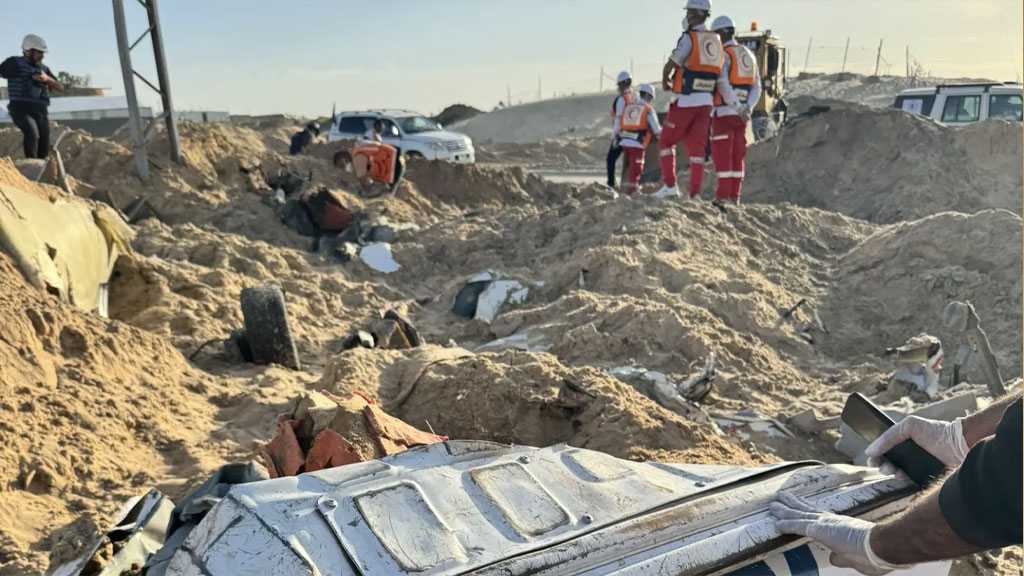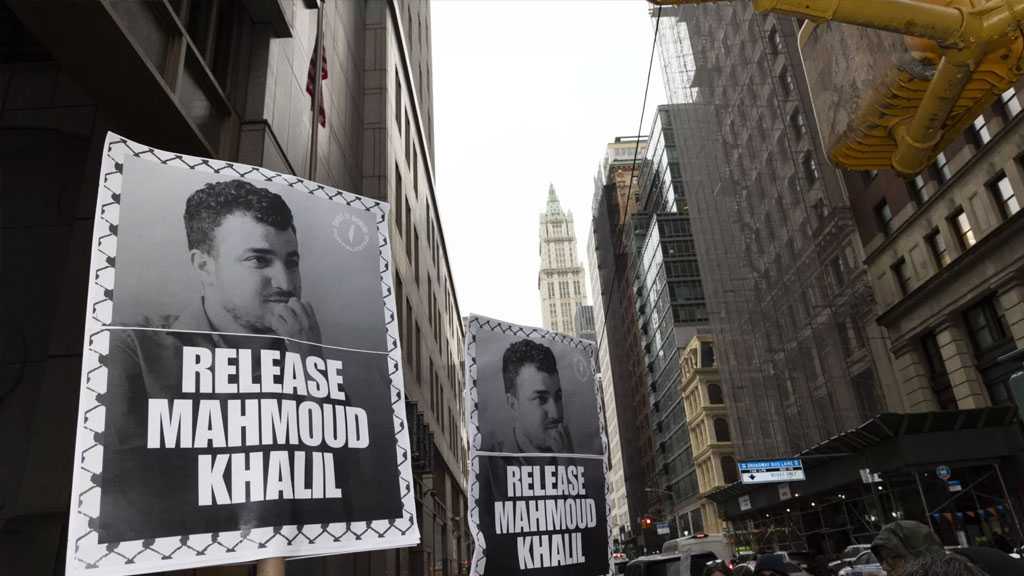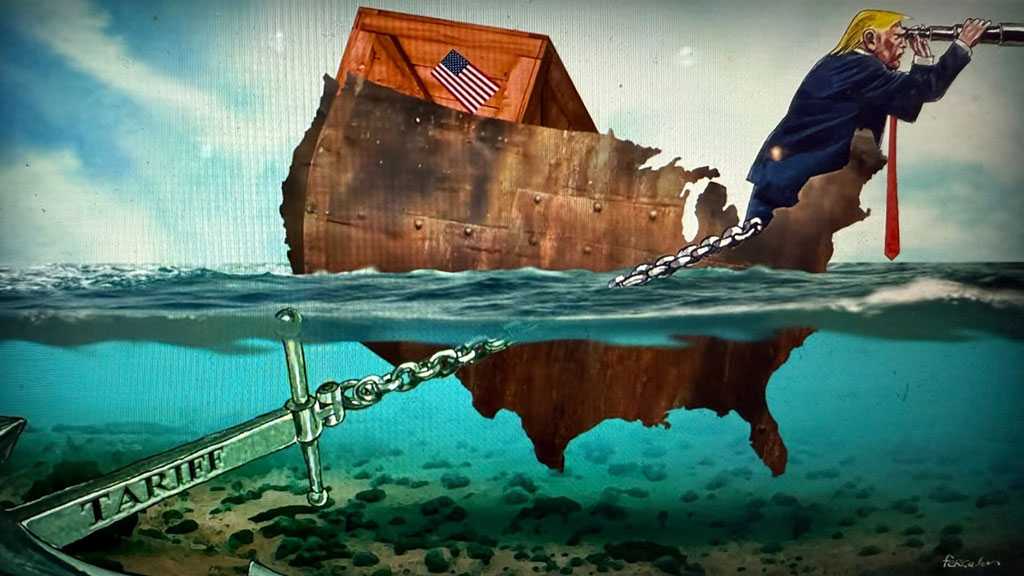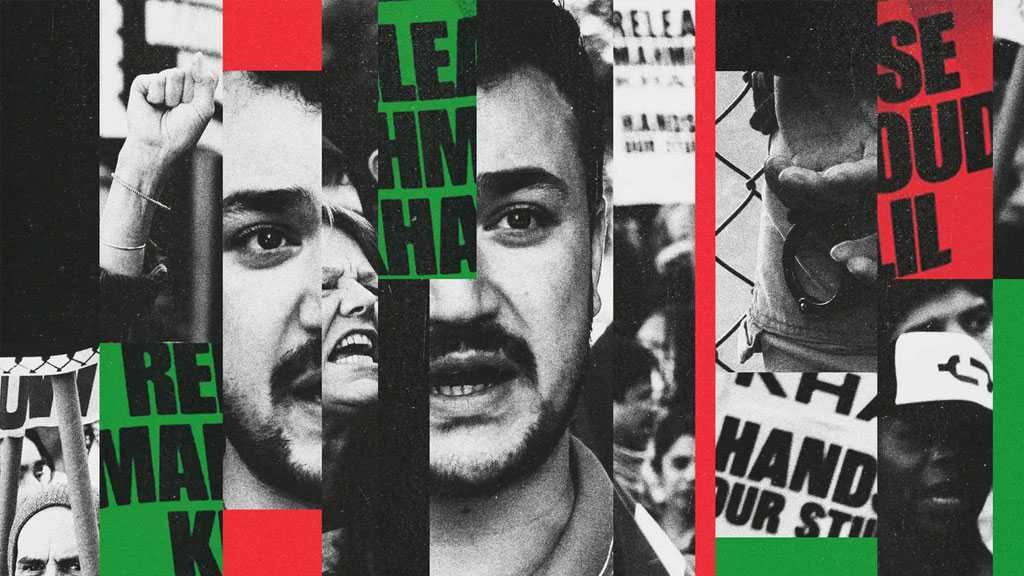March 14’s Revolutionaries: Made in Syria

No other name comes to mind, when thinking of "Syria's creations" in the Cedar Revolution, than that of MP Hadi Faouzi Hobeich. Hadi's tale begins with that of his father's in 1995. Former MP Mikhael al-Daher had refused to vote for renewing the term of former President Elias Hrawi.
So, Damascus decided to use the 1996 parliamentary elections to punish al-Daher and sent a prompt "message" to his district, Akkar. General Ghazi Kanaan, head of the Syrian intelligence apparatus in Lebanon, accompanied Hobeich in his car to offer condolences to former MP Talal al-Merehbi whose mother had died.
Later, when al-Daher contested Hobeich in the parliamentary elections, the Syrian intelligence services used all its influence to support Hobeich and crush al-Daher.
Hobeich's first television appearance was during the Lebanese Broadcasting Corporation's (LBC) coverage of festivities held by the family of then President-elect Emile Lahoud, in his hometown Baabdat, the day of his election. Hobeich was there, beaming with joy.
A few days later, his father appeared on LBC, offering the allegiance of Wadi Khaled, a part of his district, to Syrian President Bashar Assad.
While al-Daher's prominence in the Cedar Revolution was strong, Hadi Hobeich had not set foot in the land of the "popular uprising." When the government of Prime Minister Omar Karami was being toppled, he was in Interior Minister Suleiman Frangieh's office, reserving license plates.
On the eve of drawing up election slates, he was in Rabieh, Michel Aoun's headquarters, reminding the General of Hobeich Sr.'s loyalty to Aoun's transitional government in 1989. And as the relationship between al-Daher and Koreitem, Hariri's headquarters, was coming to an end, Hobeich rushed there, leaving Rabieh behind.
Syria's main "creation" in Akkar is none other than MP Khaled al-Daher. All that he knows, he learned from the Syrian intelligence that ruled Lebanon.The Future Movement's parliamentary bloc also includes MP Riad Rahhal. Before Koreitem, this brilliant doctor had been a fixture in the Syrian intelligence services center in Akkar. He was an "intimate" friend of its chief, General Mohammad Mufleh (currently in charge of the governorate of Hama in Syria).
He remained "a friend of the General" despite losing all electoral battles in his hometown after repeated attempts by Mufleh to make him an MP. This was due to Issam Fares and Frangieh, represented by Karim al-Rasi, controlling both Orthodox seats in Akkar.
In 1996, he ran on Karami's list. Then in 2000, alongside former MP Wajih al-Baarini, on Fares's list, i.e., that of Lahoud.
Members of Frangieh's Marada movement recount the tale of a disagreement between Frangieh and the chiefs of the Syrian intelligence in Lebanon at that time. Frangieh insisted on the candidacy of al-Rasi, while the intelligence insisted on Rahhal. To cut a long story short, Rahhal is today "with the revolution" - in Lebanon and in Syria - but would be very reluctant to admit a Syrian casualty into his private hospital for free.
But Syria's main "creation" in Akkar is none other than MP Khaled al-Daher. All that he knows, he learned from the Syrian intelligence that ruled Lebanon. After the annulment of the elections results contested by MP Mikhael al-Daher against Faouzi Hobeich and Jamal Ismail, by-elections for two seats were held in North Lebanon in 1997.
Out of the blue, Khaled al-Daher's name filled the ballot boxes, gaining 90 percent of the Alawi vote. The Christians seemed to be enamored by him. Some forget, but some don't, that al-Daher used to "serve coffee" in Mufleh's office.
From Akkar to Zgharta. Following the Syrian leadership's blessing of the "election" of President Rene Moawad, and his martyrdom, their intelligence services appointed his widow Nayla Moawad as MP in 1991.
Her relationship with former Syrian Vice President Abdel Halim Khaddam and General Mohammad Nassif got her a first-place position in the 1992 elections in the north, only to be surpassed by MP Boutros Harb in 1996.
During the reign of the Syrian intelligence, Harb had received more votes than Frangieh, Syria's top man in Lebanon, as March 14 likes to call him. This happened even in Zgharta, Frangieh's stronghold. Moawad also received more votes than Frangieh in all Alawi ballot boxes.
Well into the 2000s, Nayla Moawad never hesitated to invite Syrian generals to the commemorations of President Moawad's assassination.Well into the 2000s, Nayla Moawad never hesitated to invite Syrian generals to the commemorations of President Moawad's assassination. Frangieh can recall more than 20 cases where Moawad gave information about him to the Syrian authorities, while she cannot remember even one case where he did the same to her.
At that time, Frangieh was "the Maronite Patriarchy's permanent envoy" to negotiate with Kanaan, the head of the Syrian intelligence in Lebanon.
In the district of Minieh, Future Movement MP Kassem Abdel Aziz used to constantly boast that he was the first to be offered a permit allowing his partisans to cross to Syria using the direct military lane, which allows travellers to bypass customs. He used to call Syrian viceroy Kanaan "the teacher."
His new colleague, Kazem al-Kheir, inherited his seat from his father Saleh al-Kheir, who in turn had been glued to his seat by those who fixed the lists in the North for three consecutive sessions in 1992, 1996, and 2000. When Damascus made up its mind and adopted the list of Najib Mikati, not Karami, in 2000, officers in charge of creating election slates switched the candidate Mahmoud Tebbo with al-Kheir.
Al-Kheir had some Syrian officers as neighbors in his building in Beirut. He went around confirming a rumor that connected his wife, Iman Sinjaba, to the Assistant Secretary-General of the Baath Abdallah al-Ahmar, through family ties. This was enough to solidify his influence at that time.
It should be noted that the Future Movement's selection of al-Kheir Jr. coincided with Saad Hariri's rapprochement with Damascus and his reconciliation with Assad, in 2009.
A close observer of the communication lines between the Syrian intelligence and Lebanese nationals confirms that the line with the Rahhal family is still not broken.In the Bekaa, "Syria's spoiled child" was none other than MP Robert Ghanem, who learned Arabic calligraphy from Kanaan personally. The Syrian authorities rewarded his efforts by allowing the annulment of the election of MP Henri Chadid, and replaced him with Future Movement legislator Ghanem.
It is interesting how Chadid is now considered "the candidate of dependency on Syria," according to March 14, while Ghanem is the "candidate of the Cedar Revolution," i.e., of freedom, sovereignty, and independence.
In turn, the Future Movement's former minister, Mohammad Rahal, used to spend two hours every day with university students and a similar time in the office of Syrian General Ali Diab. The Ittihad Party says that every time the chief of Syrian intelligence in the Western Bekaa would meet the former minister, and party chief, Abdul Rahim Mrad, he would ask him to take special care of Rahhal, because he is "lively and active."
A close observer of the communication lines between the Syrian intelligence and Lebanese nationals confirms that the line with the Rahhal family is still not broken. Also, MP Jamal al-Jarrah from the Future bloc is famous for his relationship with former Syrian Vice President Abdel Halim Khaddam. He often "rides around" in Khaddam's BMW and Mercedes.
From Western to Central Bekaa, the first time Phalange MP Elie Marouni ran for elections, he was supported by Kanaan. It was the latter who blessed his candidacy, and not former Lebanese President Amin Gemayyel, head of the Phalange Party. In turn, Lebanese Forces MP Toni Abou Khater was the physician of all Syrian officers in Bekaa. He was also a cornerstone in the "Hamad Cell - Bekaa Branch" formed by the Syrians as a response to the anti-Syrian Qornet Chehwan Gathering.
Shoes and Gowns
In Koura, Deputy Speaker of the Parliament Farid Makari plays the role of Syria's intelligence strongman, along the lines of MP Michel Murr in the Matn district. As it did with Murr in his district, the Syrian authorities had sponsored, facilitated, and blessed Makari's domination of Koura.
People close to him remember a piece of cardboard he once carried in his pocket with an outline of Syrian General Khalil al-Zouaibi's foot. The latter had asked him to buy him a pair of Berlutti shoes from France.
One of the founders of the Qornet Chehwan Gathering recounts that Harb's allies used to accuse him of leaking minutes of meetings to the Syrian intelligence through his friend Michel Murr, who was the interior minister at the time.
This led to violent arguments between Harb and Samir Frangieh during Qornet Chehwan meetings. Harb also did not hesitate to go to Zahleh to meet Ghazaleh in former MP Elie Skaff's house in 2005, as a presidential candidate. He later met Syrian Foreign Minister Walid Muallem, on Issam Fares's yacht.
Thursday, March 15, 2012
Most of March 14's key figures, many of whom today denounce the regime in
Damascus, would not be part of Lebanon's political class if it were not for the Syrian intelligence services that once controlled Lebanon's political scene.
Also in Akkar is Future Movement coordinator Hussein al-Masri, formerly a very active member of the Baath's student wing. As for former Future MP, Mustafa Hachem, it is said that he sat in General Mufleh's office the longest and drank his coffee the most. Until a few weeks ago, Mufleh himself was commending Hachem's "political line," praising his writing skills, and recommending his investigative expertise to journalists.
--------------------------------------------------------------------------------
From Minieh to Batroun, the road takes us to the Tripoli of Mohammad Kabbara, who used to work in the port until intelligence officers took a liking to him.
Up to a few years ago, MP Butros Harb's wife used to boast about personally picking the wedding dress for, Kanaan's successor, Rustum Ghazali's daughter.
Source: AL-Akhbar Lebanese newspaper




